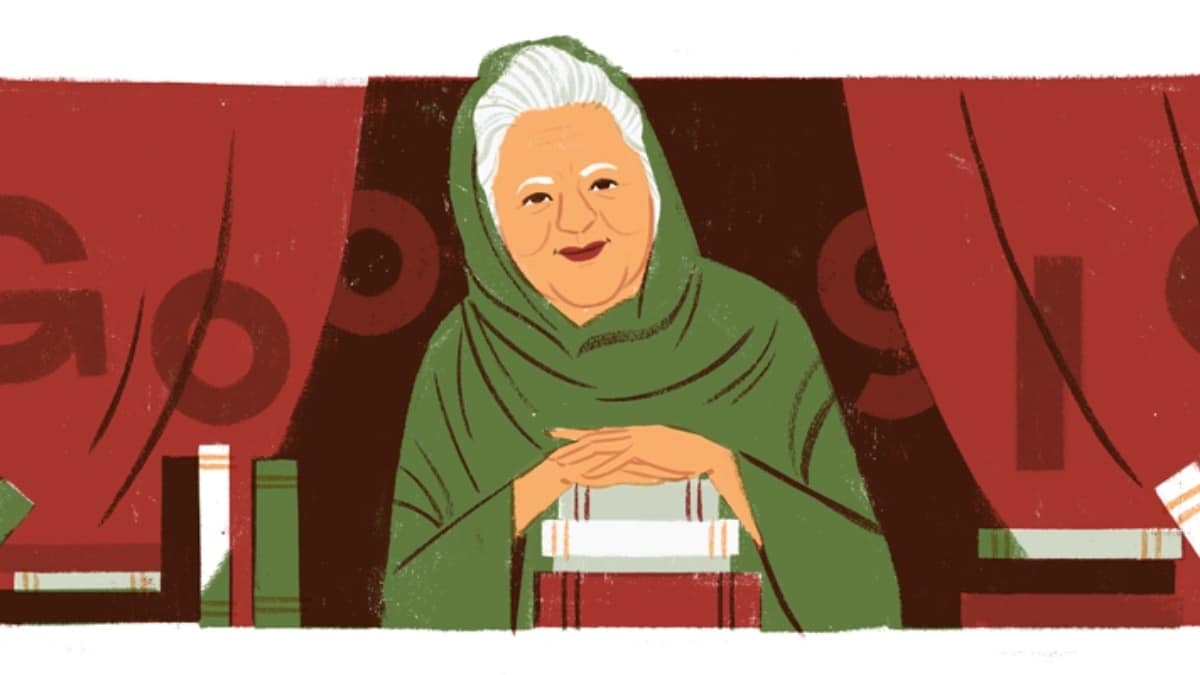Bano Qudsia: A Literary Luminary’s Odyssey in Words

Bano Qudsia (November 28, 1928 – February 4, 2017), affectionately known as Bano Aapa, was a distinguished Pakistani novelist, playwright, and spiritualist. Her life and career are an enriching tale of literary prowess and cultural contribution.
Early Life & Career
Bano Qudsia, born as Qudsia Chattha on November 28, 1928, in Ferozepur, witnessed the tumultuous years of British India. The partition in 1947 left an indelible mark on her, shaping her understanding of human relationships and societal complexities. She embarked on her educational journey, acquiring a master’s degree in Urdu literature from Government College Lahore, where her intellectual acumen blossomed.
Bano Qudsia’s literary voyage began in the 1950s, marking the onset of a career that would redefine Urdu literature. Her early works, including novels like “Raja Gidh” and “Amar Bail,” showcased her ability to delve into the intricacies of human nature and societal dynamics. Bano Aapa’s unique storytelling, often blending traditional values with modern perspectives, earned her widespread acclaim. In the realm of theater, Bano Qudsia’s plays, such as “Adhi Baat” and “Tamasil,” reflected her deep understanding of human psychology and societal norms. Her ability to craft narratives that resonated with a diverse audience established her as a literary luminary.
Read More: Top 12 Bano Qudsia Quotes in Urdu
Bano Qudsia’s marriage to renowned playwright Ashfaq Ahmed created a literary power couple that significantly contributed to Urdu literature. Their intellectual synergy gave birth to masterpieces that explored the human psyche and existential questions. The couple’s shared commitment to spiritual exploration and mysticism became a hallmark of their collaborative work.
Awards & Legacy
Bano Qudsia’s legacy extends beyond her individual works. Her exploration of Sufism and mysticism in literature added a profound dimension to Urdu literary discourse. Her influence on the literary landscape is immeasurable, with subsequent generations of writers drawing inspiration from her narrative techniques and thematic richness. Her commitment to highlighting societal issues, particularly those faced by women, resonates in her writings, contributing to the ongoing dialogue on gender dynamics in South Asian societies. Bano Qudsia’s impact on Pakistani literature transcends national boundaries, as her works have been translated into multiple languages.
Bano Qudsia’s literary contributions were duly recognized with numerous awards and honors. Her dedication to Urdu literature earned her accolades such as the Sitara-i-Imtiaz and the President’s Pride of Performance award. These honors stand as a testament to her enduring impact on the literary world.
Bano Qudsia’s life and career represent a profound exploration of human emotions and societal intricacies through the lens of literature. Her novels and plays continue to be celebrated for their depth, cultural relevance, and timeless narratives. Bano Aapa’s legacy endures not only in the literary masterpieces she crafted but also in the hearts of those who have been touched by the magic of her words.
On 28 November 2020, a Google Doodle was created to celebrate Bano Qudsia’s 92nd Birthday.
Observer Voice is the one stop site for National, International news, Sports, Editor’s Choice, Art/culture contents, Quotes and much more. We also cover historical contents. Historical contents includes World History, Indian History, and what happened today. The website also covers Entertainment across the India and World.
Follow Us on Twitter, Instagram, Facebook, & LinkedIn

